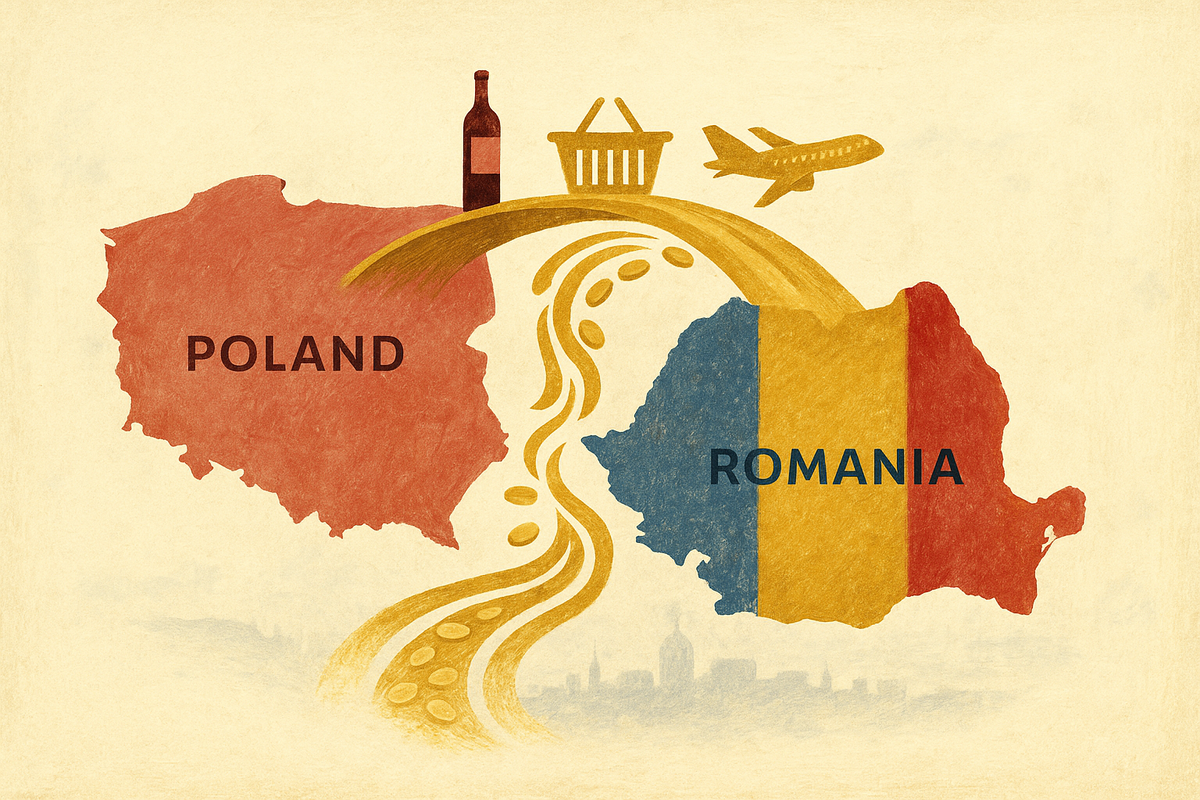
Polish investors step up Romania acquisitions
Polish companies have acquired a wave of Romanian businesses since early 2023, targeting sectors such as tourism, wine, retail and printing. The string of deals is transforming Romania’s mergers and acquisitions (M&A) market and signalling Poland’s growing role as a regional investor.
Romania’s appeal for Polish investors includes its EU membership, consumer base, and steady economic growth, according to analysts. Polish economist Mateusz Topp wrote, "Romania has been a success story in recent years for several reasons: foreign investment, innovation, the strategic dimension of the country and the stable banking system.”
Food, travel in Polish crosshairs
Maspex Group, Poland’s leading food and beverage producer, announced a voluntary bid to acquire a controlling stake in Purcari Wineries, listed on the Bucharest Stock Exchange, on 2 May. The deal, valued at over RON 420mn (EUR 84mn), would give Maspex a majority position in one of the region’s most dynamic wine producers, subject to regulatory approval.
Later that month, Polish travel agency Rainbow Tours signed a preliminary agreement to acquire 70% of Romanian travel firm Paralela 45. The transaction, expected to close by the end of June and subject to clearance by Romania’s Competition Council, is intended to give Rainbow Tours a foothold in the Romanian tourism market.
Rainbow Tours CEO Maciej Szczechura said, “We are investing in a company that has consistently proven its value through over three decades of trusted service," adding that the merger "supports our international expansion strategy and will enable both companies to diversify offerings and deliver complete travel experiences".
Polish retail, industry also move into Romanian market
The Polish retail group Zabka, often referred to as the country's answer to 711, entered Romania in late 2024 under the Froo brand. As of May 2025, Zabka was operating 29 Froo convenience stores in Romania, which management says offers a “dynamic retail environment” that dovetails with its regional strategy.
Zabka International CEO Anna Grabowska said, “Romania is a significant market in Central and Eastern Europe (CEE), with a population of over 19mn inhabitants, making it the second-largest consumer market in the region.
"The similar consumer profile to Poland and the growth prospects for the Romanian market made this direction a natural step in the expansion of the Zabka Group,” she added.
In the industrial sector, label manufacturer Prime Label acquired Romanian printer Grafoprint in November 2024. The deal marked the sixth cross-border acquisition by the Innova Capital-backed company in five years, underlining the trend of consolidation across CEE.
Prime Label CEO Arkadiusz Sapiecha called 2024 a milestone year for the company. "We’re set to surpass EUR 100 mn in sales, joining the ranks of Europe’s largest label manufacturers. We see Romania as a market with great potential, although it is still underestimated,” he added.
FDI grew in Q1
M&A Barometer data from EY Romania shows the share of domestic deals fell from 51% in Q4 2024 to 43% in Q1 2025, with foreign-led transactions rising to 57%. Poland is now among the top five sources of foreign investment in Romania, the Romanian National Investment Agency confirmed, as bilateral trade between the two countries surpassed EUR 11bn in 2023, up 27% from 2020.
Both Poland and Romania also participate in the Three Seas Initiative, which fosters cross-border infrastructure and investment, local media noted.
In May, the Polish Investment and Trade Agency called Romania "a strategic market for Polish companies seeking scale in the region”. The Romanian Chamber of Commerce called the arrival of experienced regional investors “a vote of confidence” in the economy, which also “raises the bar for local competition”.
More buyouts anticipated in 2025
Further Polish acquisitions are expected in Romania this year, particularly in retail, logistics and services, according to recent sector reports. Market watchers say continued capital inflows are set to reshape the Romanian business landscape and further integrate the two economies.
